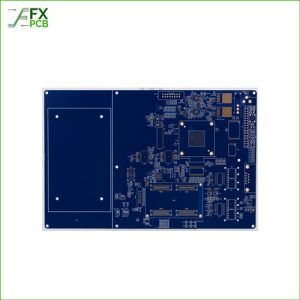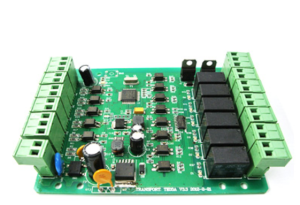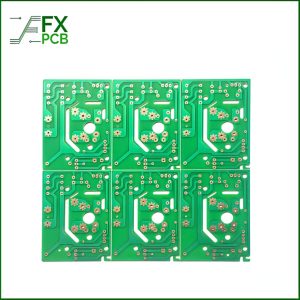Certification and IPC Standard
Certification and IPC Standard
At FX PCB, we pride ourselves on being a leading provider of high-quality Printed Circuit Boards (PCBs) and Printed Circuit Board Assemblies (PCBAs). With a commitment to excellence and a focus on customer satisfaction, we have established ourselves as a trusted partner for companies across various industries.
Our Expertise
With years of experience in the industry, FX PCB has developed a deep understanding of PCB manufacturing and assembly processes. Whether you require single-layer, double-layer, or multi-layer boards, we have the expertise to meet your specifications. Our state-of-the-art facilities are equipped with advanced machinery and technology, allowing us to deliver precision-engineered PCBs that meet the highest quality standards.
Comprehensive Services
At FX PCB, we offer a comprehensive range of services to cater to all your PCB needs. From PCB layout and design to prototyping, production, and assembly, we provide end-to-end solutions to streamline your manufacturing process. Our team of skilled engineers and technicians work closely with each client to understand their requirements and deliver customized solutions that meet their specific needs.
ISO9001 Certification
Quality is at the core of everything we do at FX PCB. That’s why we are proud to be ISO9001 certified. This internationally recognized certification demonstrates our commitment to maintaining the highest standards of quality management across all aspects of our operations. With rigorous quality control measures in place, we ensure that every PCB and PCBA that leaves our facility meets the strictest quality standards, exceeding customer expectations every time.
Customer-Centric Approach
At FX PCB, we believe in building long-term relationships with our clients based on trust, reliability, and exceptional service. We understand that every project is unique, and we strive to provide personalized solutions that address the specific needs of each client. From small startups to large corporations, we treat every client with the same level of attention and dedication, ensuring that their projects are completed on time and within budget.
RoHS and REACH Compliance
In addition to our ISO9001 certification, FX PCB places a strong emphasis on environmental sustainability and regulatory compliance. Our products are meticulously crafted to meet the requirements of RoHS (Restriction of Hazardous Substances) and REACH (Registration, Evaluation, Authorization, and Restriction of Chemicals) standards. By strictly adhering to these regulations, we ensure that our PCBs and PCBA solutions are free from hazardous substances, promoting environmental protection and safeguarding the well-being of end-users.
IPC Standards
PC-A-600 – Acceptability of Printed Boards
IPC-6012 – Qualification and Performance
IPC-TM-650 – Test Methods Manual
IPC Standards
Printed Circuit Board (PCB) testing standards are a set of guidelines and specifications established by industry organizations to ensure that PCBs meet specific quality, reliability, and performance criteria. These standards provide a framework for manufacturers, designers, and testers to follow in order to produce high-quality PCBs. Here are some of the most commonly referenced PCB testing standards:
- The Association Connecting Electronics Industries (formerly the Institute for Interconnecting and Packaging Electronic Circuits) sets many widely recognized standards for the electronics industry. Some key IPC standards related to PCB testing include:
- IPC-A-600: Acceptability of Printed Boards
- IPC-6012: Qualification and Performance Specification for Rigid Printed Boards
- IPC-TM-650: Test Methods Manual (comprising various test methods for PCBs)
PC-A-600 – Acceptability of Printed Boards
PC-A-600 – Acceptability of Printed Boards:
- Purpose: IPC-A-600 sets the standard for the acceptance criteria of printed circuit boards. It provides visual criteria for evaluating the acceptability of PCBs with regard to surface conditions, soldering, hole plating, conductor spacing and width, and other characteristics.
- Key Contents:
- Classifications: The standard classifies PCBs into three classes (Class 1, Class 2, and Class 3) based on their end-use applications and the level of quality and reliability required.
- Acceptance Criteria: It provides detailed illustrations and descriptions of acceptable and non-acceptable conditions for various features on a PCB, including surface finishes, soldering, plated-through holes, conductors, and more.
- Defects and Allowable Conditions: Defines various types of defects that may occur during PCB fabrication and assembly, and specifies the acceptable limits for these defects based on the class of the board.
- Inspection and Testing: Describes inspection methods and testing procedures for determining compliance with the specified criteria.
- Documentation: Outlines requirements for documentation, including records, reports, and certificates of conformance.
- Application: PCB manufacturers, assemblers, and inspectors use IPC-A-600 as a reference to ensure that PCBs meet the specified quality and reliability standards.
IPC-6012 – Qualification and Performance
IPC-6012 – Qualification and Performance Specification for Rigid Printed Boards:
- Purpose: IPC-6012 establishes the requirements and performance characteristics for rigid printed boards. It covers material properties, design, construction, environmental conditions, and acceptance criteria.
- Key Contents:
- Classes: Similar to IPC-A-600, IPC-6012 classifies PCBs into three classes (Class 1, Class 2, and Class 3) based on their application requirements.
- Materials: Specifies the material requirements for the base laminate, surface finish, conductors, dielectric, and other components of the PCB.
- Construction: Details the requirements for the layout, plating, solder mask, legend, and other features of the PCB.
- Environmental Testing: Outlines the testing procedures to assess the PCB’s performance under various environmental conditions, including temperature, humidity, thermal shock, and more.
- Reliability Testing: Covers reliability testing, such as thermal stress, mechanical shock, and vibration, to ensure the PCB’s durability.
- Application: IPC-6012 is used by PCB designers, manufacturers, and assemblers to ensure that rigid PCBs meet the specified performance and reliability requirements.
IPC-TM-650 – Test Methods Manual
IPC-TM-650 – Test Methods Manual:
- Purpose: IPC-TM-650 is a comprehensive manual that provides a collection of test methods for evaluating various aspects of printed board and electronic assembly quality, reliability, and performance.
- Key Contents:
- Categories of Test Methods: The manual is organized into categories, including environmental, electrical, mechanical, thermal, and others. Each category contains specific test methods.
- Detailed Procedures: Each test method is described in detail, providing step-by-step instructions for conducting the test.
- Applicability: It specifies the purpose of each test, the equipment needed, and the conditions under which the test should be conducted.
- Application: PCB manufacturers, assemblers, and quality control personnel use IPC-TM-650 as a reference manual for conducting a wide range of tests to evaluate PCB and electronic assembly performance and reliability.
These standards play a crucial role in ensuring the quality, reliability, and performance of printed circuit boards. They are widely adopted by the electronics industry and provide a common reference for manufacturers, designers, assemblers, and inspectors.
RoHS and REACH Compliance
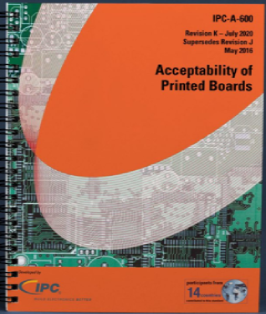
IPC-6012 – Qualification and Performance Specification
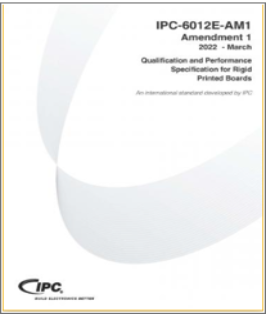
IPC-TM-650 Test Methods Manual


